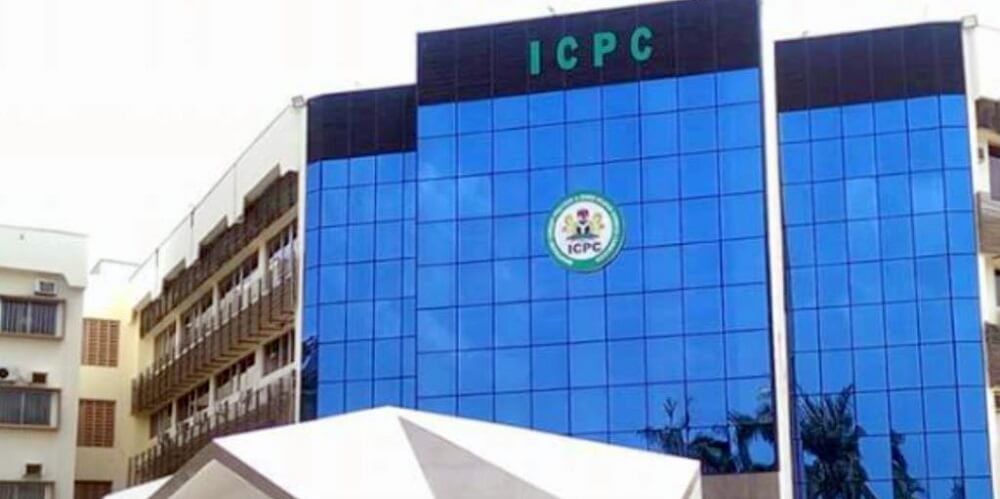How Anti-Corruption Agencies Can Curb Illicit Financial Flows To Education Sector – ICPC
The Director of Operations at the Independent Corrupt Practices and other related offences Commission (ICPC), Akeem Lawal, has highlighted some ways in which anti-corruption agencies can prevent Illicit Financial Flows (IFF) in the education sector.
According to him, approximately 30 million pounds in school fees flows from West Africa into the UK’s private education system and most of those funds come from Nigeria. As such, he spoke on the importance of ascertaining if the funds are of the IFF nature.
Advertisement
He gave a number of approaches which he suggested anti-corruption agencies could adopt in order to curb the unwanted financial flow in the education sector.
Lawal said this on Monday at the Capacity Building Session for Investigators, Prosecutors and Tax Inspectors on Investigating and Prosecuting IFF which held virtually.
“In investigating IFFs in Education sector, the Anti-Corruption Agencies must adopt the following processes: Increased profiling of persons under investigation and their family members; Net-worth analysis bearing in mind the provisions of the Public Service Rules and the Code of Conduct Bureau (CCB) Act; Collaborations with Nigeria Immigration Service, Embassies/High Commissions regarding travel history and purpose,” he said.
Lawal added that other processes that needed to be adopted include, collaboration/ investigation of schools in the country charging exorbitant fees; Investigating schools in Nigeria that only accept foreign currencies as school fees; and analysis of documents and information received to establish links and establish origin and movement of illicit financial flows for education purposes.
Advertisement
The Director also outlined some areas to focus on while investigating IFFs in the education sector.
“Profiling information that a respondent’s children are schooling abroad, evidence of application for student visa, Value of the amount payable as school fees, currency of payment, particulars of sponsor/guarantors,” he said.
Other areas of focus he mentioned are; indication of huge transfers abroad in bank statement of accounts, transfer of money to BDC, disproportionality of legitimate earnings to amount transferred or converted to forex.
Lawal also emphasized the danger IFFs constitute to the socio-economic conditions of developing countries.
According to him, they impact negatively on “social and political advancement, power equality/wealth relations globally, state institutions by weakening them and infrastructural and economic development.
Advertisement
“IFFs thrive largely in countries with weak regulatory controls and high level of corruption.”
Also speaking during the event, the Chairman of the ICPC, Prof. Bolaji Owasanoye also spoke on the tremendous negative impact that IFFs have on Nigeria’s development.
“Illicit Financial Flows impact a country’s economic and social development in a myriad of ways. Undocumented flights of wealth to and from – as well as within – a country have severe repercussions on government revenues, wealth that could otherwise be invested in public spending and other forms of economic and social reforms.
“Nigeria is losing billions of dollars from expected revenue due to poorly structured contractual agreements and tax laws which encourage illicit financial flows by multinational corporations.
“The drain on resources and tax revenues caused by IFFs has thwarted the expansion of basic social services and infrastructure programmes that are targeted at improving the wellbeing and capacities of all citizens, in particular, the very poor,” he said.
He said that the impact of crude oil theft in the sector could discourage investors from bringing in the needed resources for gas expansion.
Advertisement
He said, “It is worrisome that the Nigerian upstream environment has become very hostile due to the activities of these criminals maybe the issue of host communities especially the issue of crude oil theft has made upstream sector very unattractive at the moment and it is an issue that seriously needs to be dealt with.
“The investors are there, the issue of energy transition is there, but that is not playing major impact in attractiveness of the sector to investment. So, we believe as a regulator and of course we really commend the effort of the Federal Government in line with the directive of President Muhammadu Buhari that crude oil theft should be curbed.
“At the moment the various government security agencies are doing everything possible to ensure that this act of criminality is brought to the barest minimum if not completely stopped.”



